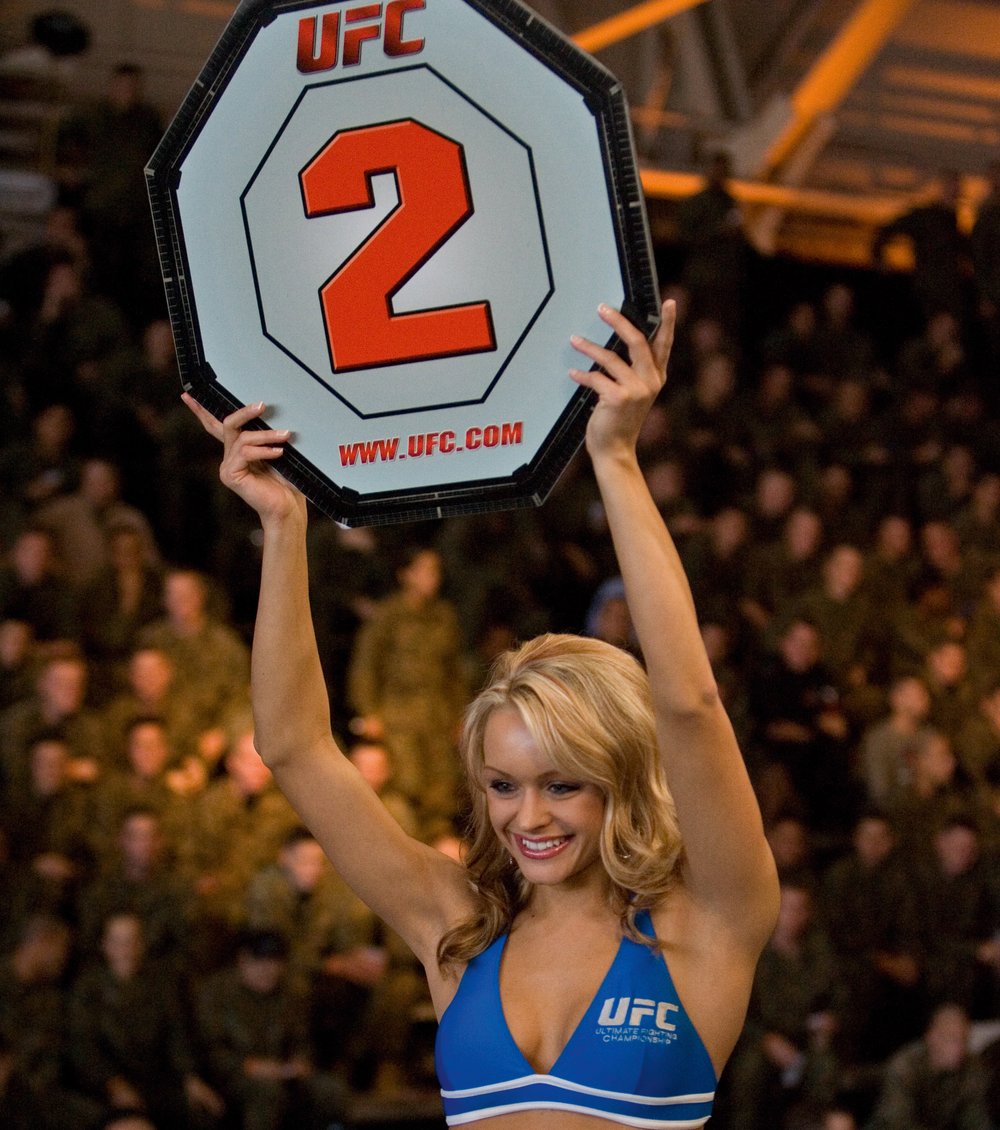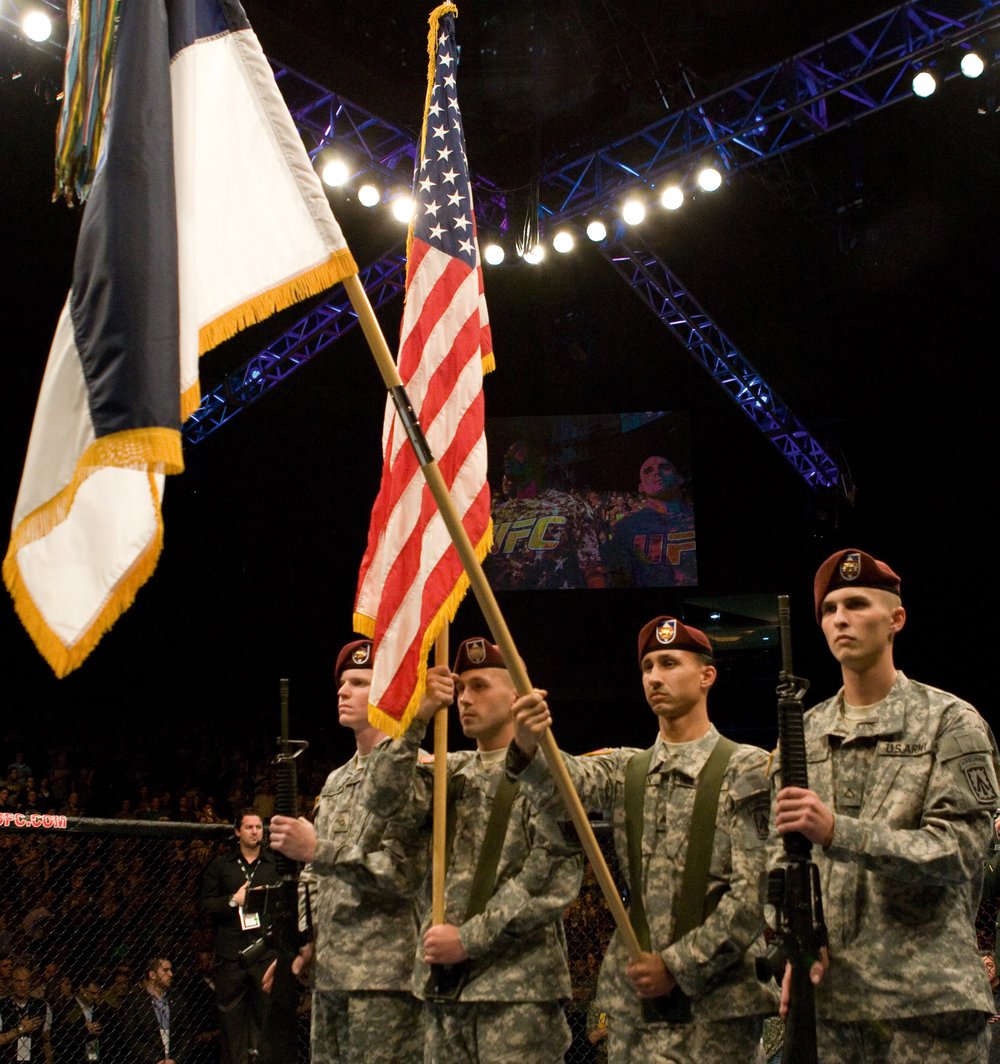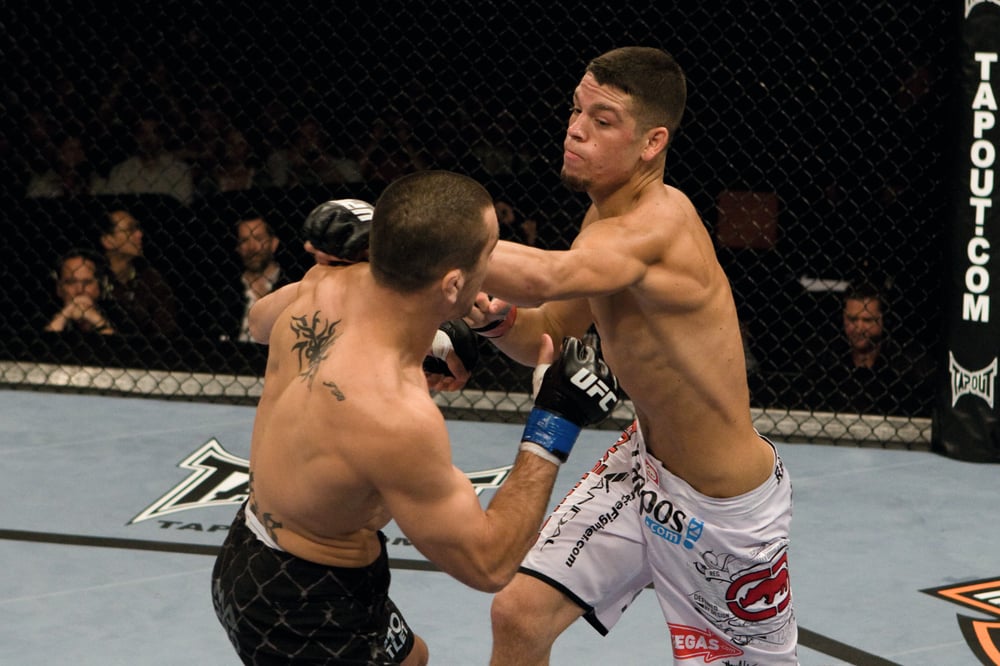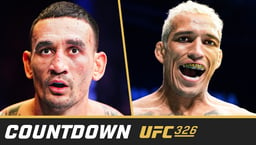
Issue 054
September 2009
Sadah, Iraq, May 2005. Second Lieutenant Brian Stann was trying to save the lives of his fellow Marines. After leading the defense of a vital bridge while under mortar attack, Stann’s mobile assault unit were hurtling through a town rammed full of armed insurgents. Another unit back at the bridge were running out of ammunition but the heavy fire leveled at Stann’s four-Humvee convoy, from no more than 50 meters away, threatened that re-supply and their lives. Stann’s men were officially in a ‘kill zone’.
“We tried to use speed, basically, as our best defense to get out of there,” Stann recounted, safely back on US soil. Indeed it was his split-second decisions that were successful in delivering his men away from danger that day. It’s a trait that no doubt helped him become WEC light heavyweight champion and a current UFC fighter.
The armed forces are linked to the UFC by more than Brian Stann. The UFC have put on fundraisers for servicemen, Fight Nights at army bases, troop visits, fighter seminars and, beyond that, all UFC fight cards are shown free on the Armed Forces Network, a TV channel broadcast wherever US troops are stationed.
While all these things are admirable the UFC is a company. Bottom line. Companies want to make money and none of those activities will create any extra cash. So why does the UFC do it? Is it benevolence or a marketing ploy? To find out you have to start at the bottom.
Mixed Martial Arts is a brilliant way for a soldier to find a release. When it’s likely their mind is constantly on one of two things, missing their families or the ever-present threat of death, watching two people engage in an adrenaline-heavy game of human chess is likely a welcome rest. With the countless servicemen turned MMA fighters it’s evident that there’s a huge cross-pollination of interests. When many people either go into the armed forces as UFC fans, or become converts soon after, it makes sense the UFC would deliver their product to their followers.
But what is there for the UFC to gain? Of the two military-specific Ultimate Fight Nights (UFN), UFN 7: Sanchez vs Riggs and UFN 16: Fight For The Troops, neither are likely to have made much money. It’s actually probable they were a financial drain. Both events were free and held at military bases with seats only available to military personnel, meaning the UFC would have received no gate proceeds to offset their production costs or fighter payroll.

From a business perspective, why bother? While it may appear to the untrained eye that these events don’t break even, there are incoming sources of revenue such as sponsorship and broadcast rights to the events from many TV channels across the world. But the brains behind the UFC are still waiving a lot of gate and potential pay-per-view revenue to stage these fights free for the troops.
Both fight cards were shown free and live on Spike TV in America, as is common for all the UFC’s Fight Nights and TUF finales. Although there may be less monetary benefit, could viewer numbers for these military events have been higher than normal? The ratings for UFN 7 in 2006 and UFN 16 in 2008 both rose when compared to their previous Fight Nights, also shown free on Spike TV, suggesting that the military focus may have helped boost ratings, thus the UFC’s profile. Spike TV’s senior vice president of Sports and specials, Brian Diamond, says that those events also get the best response. “The two fights we’ve done surrounding the military have taken on a life of their own. We’ve had great feedback from the press and emails from service people and their families thanking both Spike and the UFC for bringing their beloved sport to their backyards.”
Though that’s the case, it’s clear the shows benefit the troops the greatest and, although the UFC may have received little profit, Fight For The Troops raised a huge $4 million for the Intrepid Fallen Heroes Fund, all of which went to building a hospital for soldiers returning home with brain injuries. Helping servicemen is a cause that resonates with everyone in the UFC, all the way to the top.
During the recent UFC Fan Expo held in Las Vegas over the UFC 100 weekend, Lorenzo Fertitta, part owner of the UFC, gave a current serviceman free tickets to UFC 100 after he discovered the man had bought tickets to the event in what turned out to be a scam. He later told a US newspaper, “The military is our biggest priority as far as who we’re trying to help. We respect these guys so much for what they’re doing for our country. We think we need to give back.”

The UFC also does more hands-on work with the military. They frequently arrange fighter visits to army bases or even war zones. Up-and-coming British fighter Dan Hardy, together with Mike Swick, Jon Fitch and Octagon Girl Edith Labelle, met US troops stationed in Germany. “It was an awesome experience. Everyone was so friendly and appreciative of us coming out to visit,” said Dan. All the fighters taught sections during a short seminar, recorded some commercials for the Armed Forces Network, and stood in the cockpit of a C-17 Globemaster III transport aircraft.
The relationship between the UFC and the troops was startling to Dan. “I was just amazed at how many of the troops said they were inspired by us UFC fighters. I found that very surreal given the fact that their job is so much more dangerous than ours. It put a lot of things into perspective for me and made me appreciate the fact that I see my loved ones all the time.
“The attitude of the injured troops is something to be commended too. Of all the injured troops we met, every one of them said they want to get back to their squad as soon as possible. That was really touching.”
It’s evident these visits are hugely beneficial to troop morale. Even though it may seem unlikely to some, it’s reasonable that it really is just the thought of helping the soldiers that encourages the UFC to do all these events. But why the military? Aren’t there plenty of charitable causes that would bennefit from their help? The UFC already have it covered. In the UK for example, the UFC is set to start supporting a scheme that’s trying to get disadvantaged children into sport, noting that training MMA is a very low-cost activity.

But could it just be good PR to support the troops? While a cynical person might easily think that, it’s not an argument that holds water. The only people who really know about the near-monthly troop visits are the troops and the fighters. The UFC could litter every major news outlet with press releases publicizing these PR-friendly events, but they don’t. You’d be lucky to find a two-minute video buried somewhere on the UFC website.
Furthermore, it seems the US military believe the UFC’s motives are genuine. They gave Dana White the Armed Forces Foundation Humanitarian Award in honor of everything the company does. Upon accepting it Dana said, “I know a lot of tough people, but there’s nothing I’ve ever seen in my entire life that’s more unselfish, brave and amazing than being an American soldier.”
As you might imagine from such a patriotic country, it’s not uncommon for all the major US sports to pay homage to the military. Around Memorial Day Weekend sports teams will often give servicemen free entry to games and put on benefits for the troops.
If plenty of American sports give back to their military maybe it isn’t so strange that the UFC would choose to do the same despite there being no bonus revenue. Even though there may be a certain amount of image boost from any press reports on a company’s military kinship, it certainly doesn’t outweigh the huge emotional boost that the armed forces get from meeting the fighters they admire. In fact, the UFC could even be running the risk of enraging anti-war fight fans through all this work. But Dan Hardy doesn’t think that should be the case at all. “Too often people get wrapped up in the politics and forget that the people in the forces are just doing a job. Even if you don’t agree with the war, these guys need your support.”
It makes sense the UFC choose to do meet and greets and put on free events. As well as it being a thrill for ex-military fighters to perform in front of fellow servicemen, the UFC is actually doing something highly altruistic by putting on these shows for free, forgoing any real profit and staging them solely for the benefit of the troops. Besides, there aren’t many other fight organizations doing anything for any charity.
Beyond helping soldiers, the UFC are helping fellow human beings. “I have seen first hand how much it lifts the troops’ moral,” recounts Hardy. “Quite a few of them said, ‘Just for one night, it’s like we are back home’.” Perhaps that is the real bottom line.

Boot Camp: MMA Fighters in the Military
Randy Couture
A legend of the sport who needs no introduction, Randy Couture served in the US Army with the 101st Airborne for six years after graduating high school. He took up boxing while in the military to compliment his wrestling in which he competed during his service, although he never saw combat.
Brian Stann
In addition to being a former WEC Light Heavyweight Champion and current UFC fighter, Brian Stann fought in the Iraq War with the United States Marine Corps. 2nd Lieutenant Brian Stann of the 2nd Mobile Assault Platoon was awarded a Silver Star for valor in combat due to his role in securing a vital bridge and ensuring all of his platoon returned home safely
Tim Kennedy
Staff Sergeant and Green Beret Tim Kennedy is still serving in the US army. He has fought for the IFL and Strikeforce recently beating Nick ‘The Goat’ Thompson despite being injured by shrapnel in an explosion while deployed last year. Kennedy was once offered a UFC contract but had to refuse due to his military career.
Jorge Rivera
A UFC veteran who has fights against Anderson Silva, Rich Franklin and Chris Leben on his record, Jorge Rivera is a regular when it comes to visiting troops and giving seminars. A former serviceman himself, Rivera was an armored cavalry scout in the US Army until his enlistment ended in 1991. He has been fighting since 2001 and recently signed a new four-fight contract with the UFC.
...









